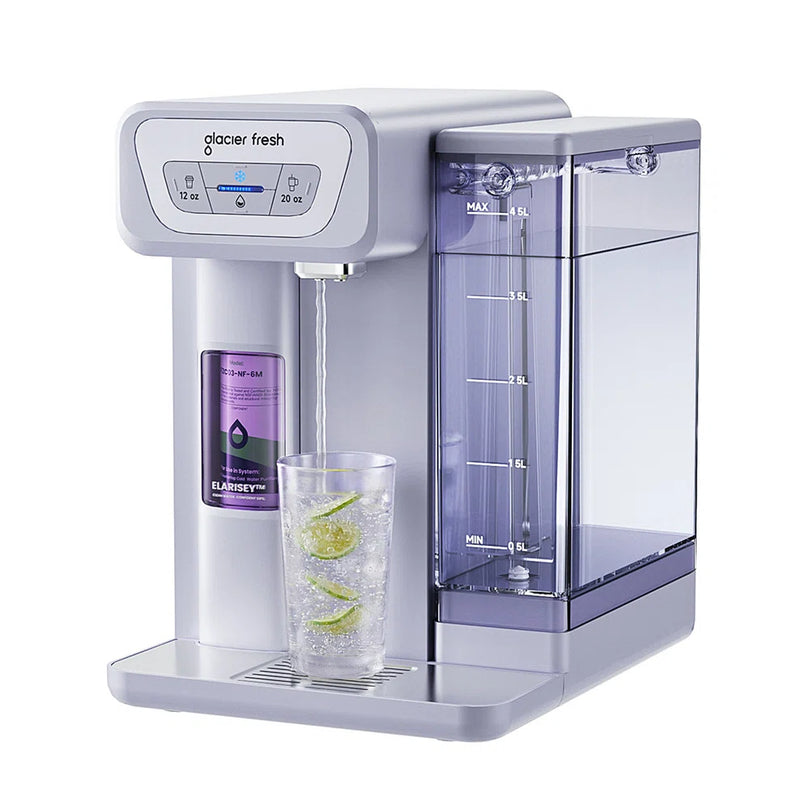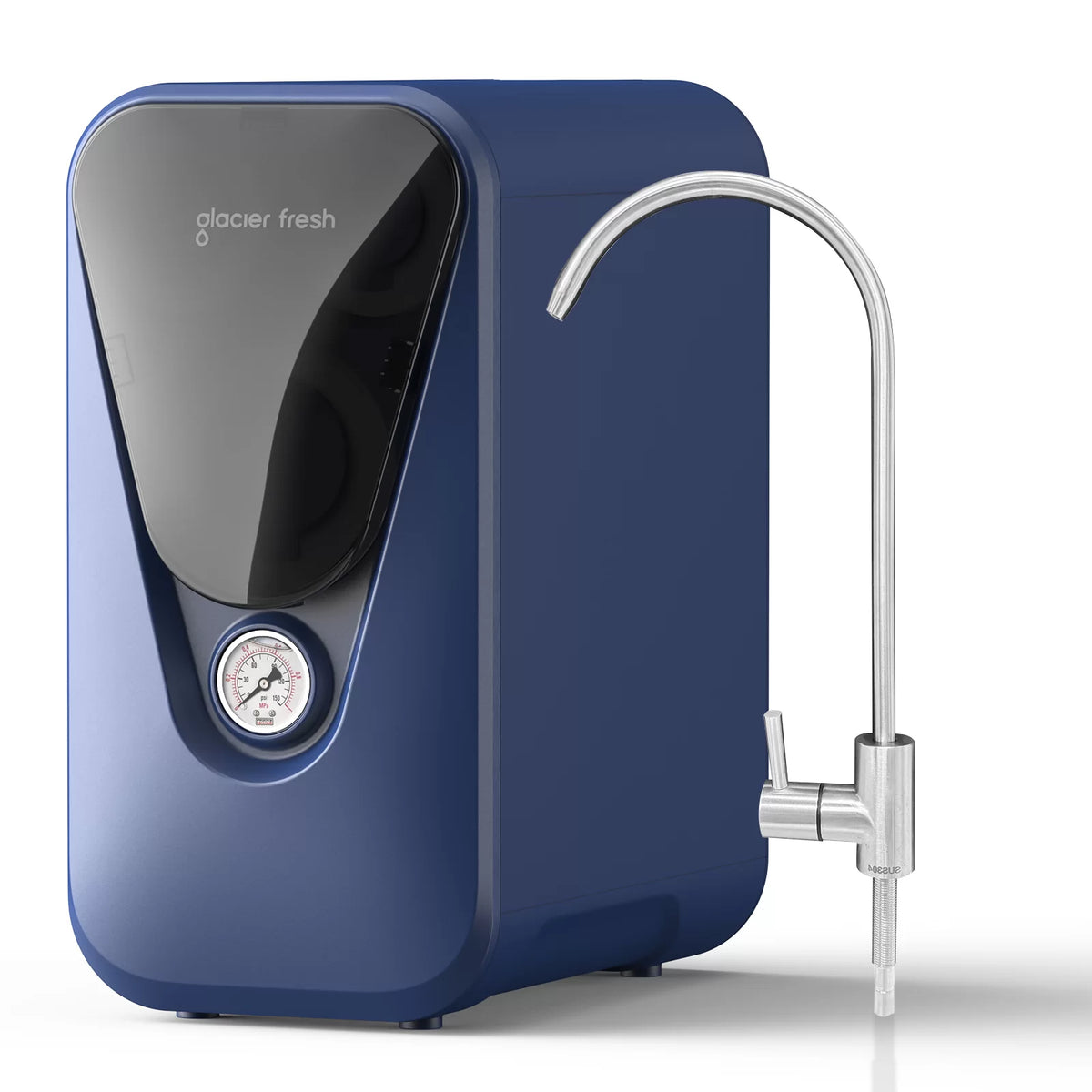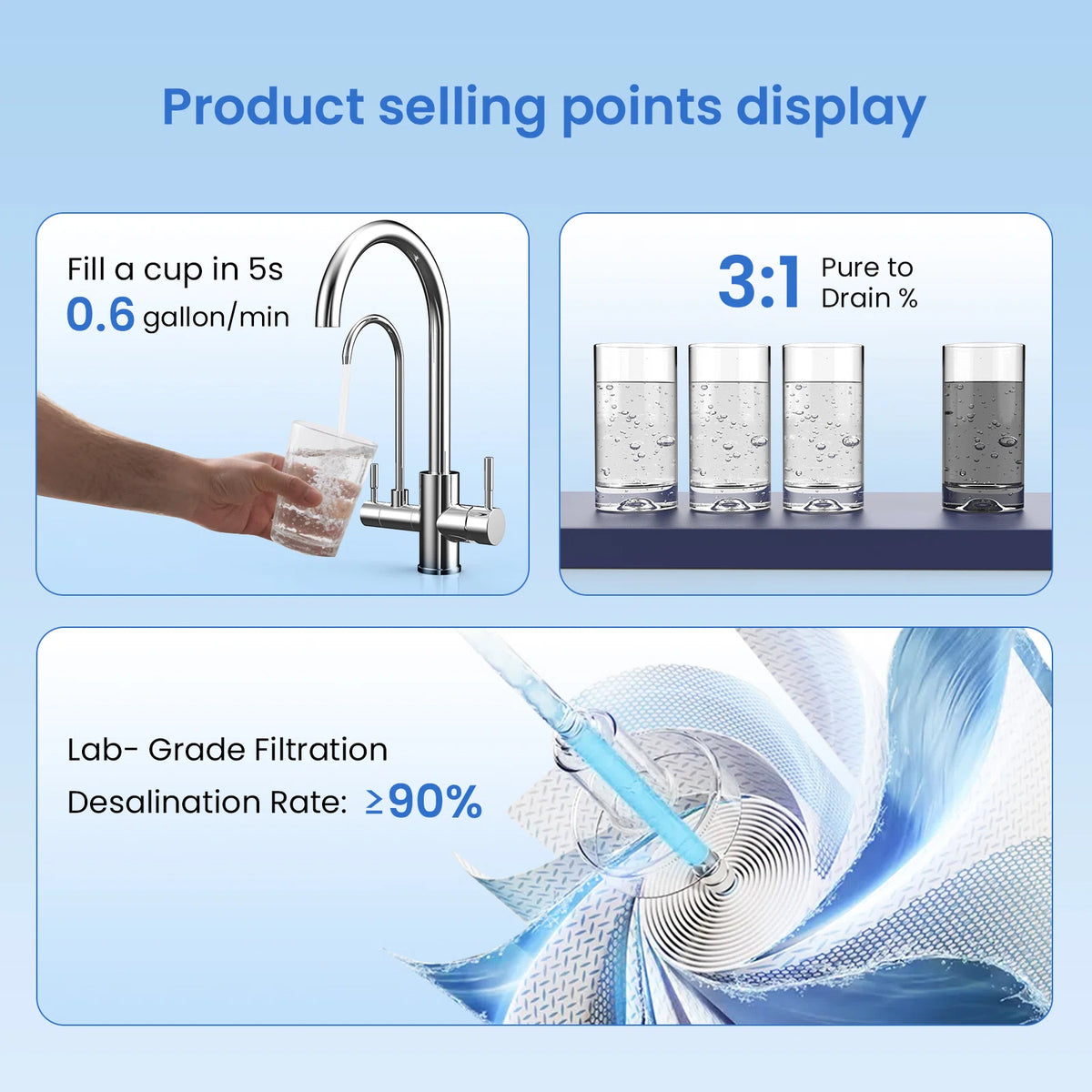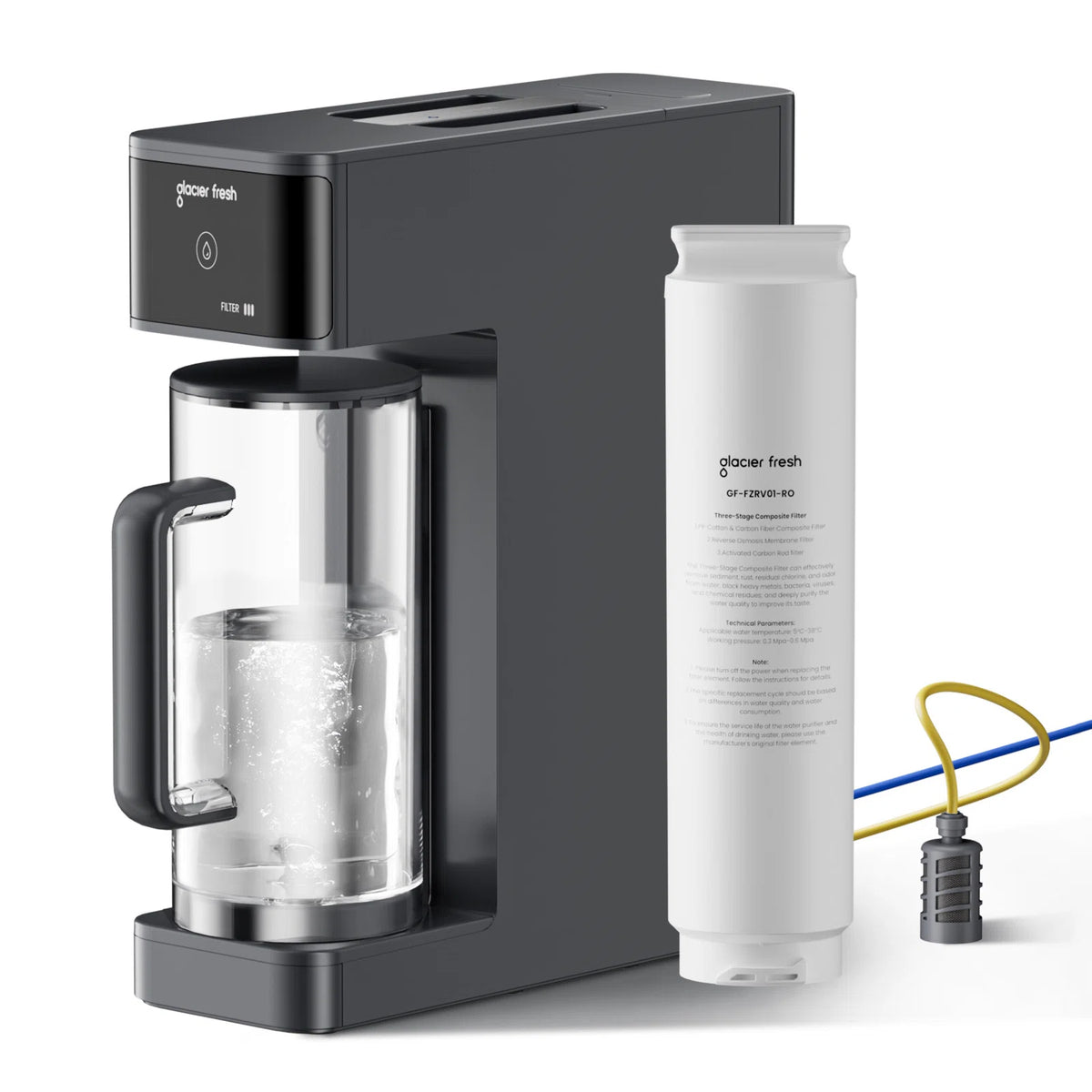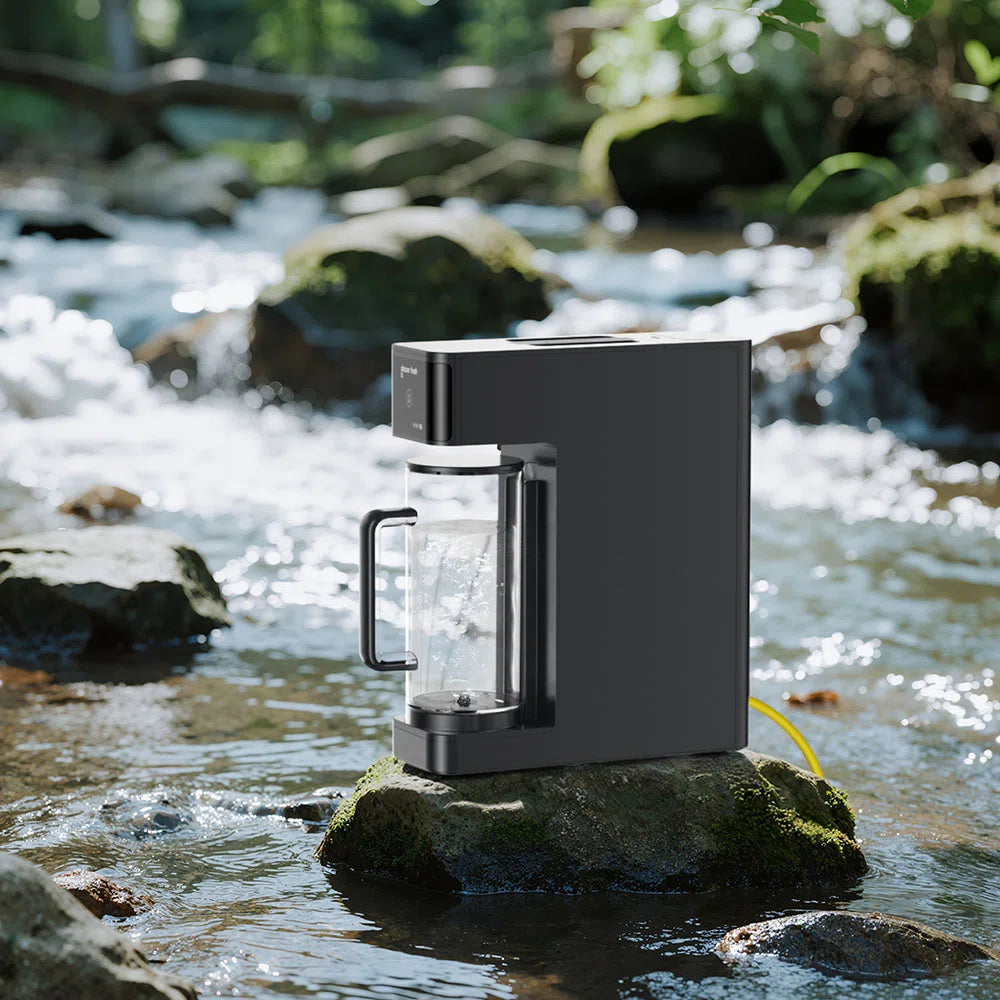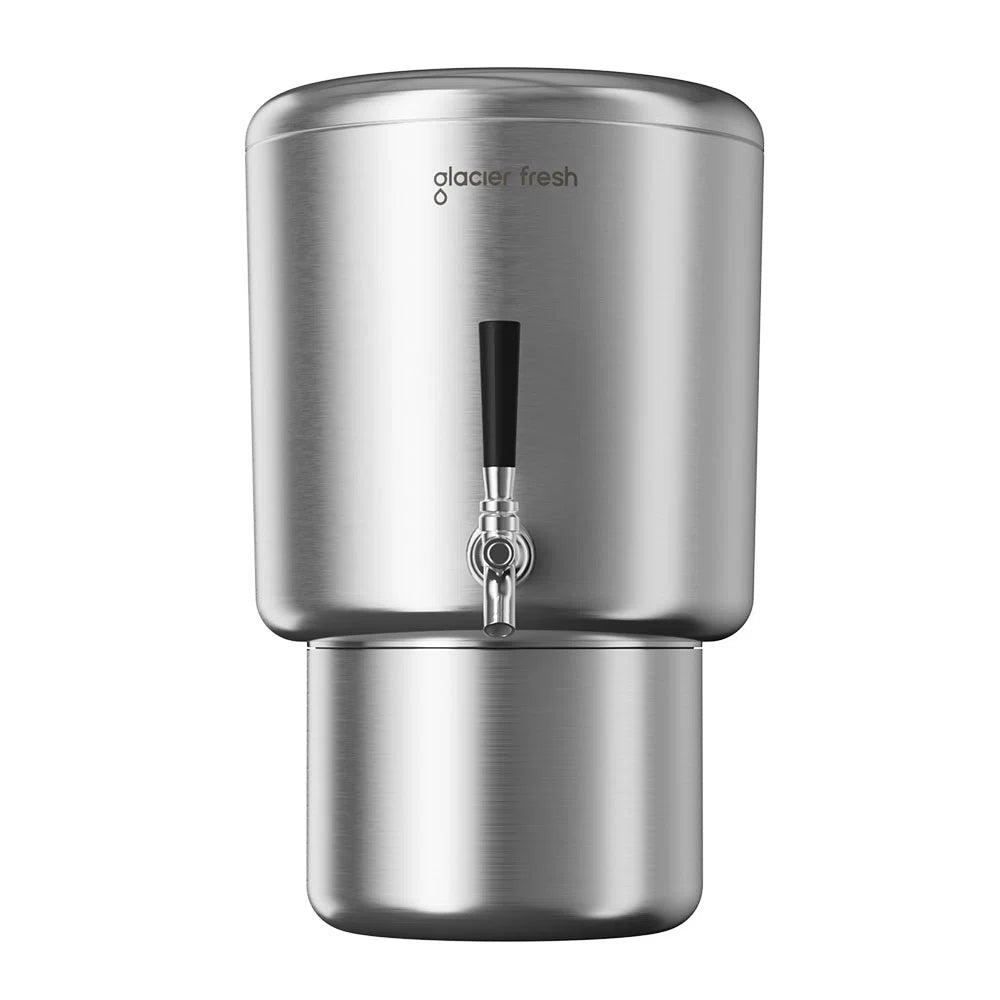Table of Contents:
Benefits of filtering water for your aquarium
Types of aquarium filtration systems
How to choose a filter for your aquarium
Maintenance tips for your aquarium filter
FAQs
Conclusion
If you want to ensure a healthy habitat for your fish, filtering the water in your aquarium is crucial. By using a filtration system, you can remove harmful substances and maintain water quality. But with so many options available, how do you choose the right filter? In this article, we'll guide you through the benefits of filtering water using different filtration systems and provide maintenance tips to keep your aquarium clean and your fish thriving.
Benefits of filtering water for your aquarium
Improved water quality

To ensure a healthy habitat for your fish, using a high-quality aquarium filter significantly improves water quality. Proper filtration helps maintain optimal conditions by removing impurities and maintaining a balanced ecosystem. One important aspect of improved water quality is regular water testing. This allows you to monitor parameters such as pH, ammonia, nitrite, and nitrate levels, ensuring they remain within the suitable range for your fish.
Additionally, aquatic plants play a crucial role in water quality improvement. They absorb excess nutrients, produce oxygen, and provide hiding spots for fish. Maintaining a stable water temperature is also essential for fish health and well-being. Proper filtration ensures that water temperature remains consistent, preventing stress or shock to your fish. The nitrogen cycle, which converts harmful ammonia into less toxic substances, is also facilitated by a well-functioning filter. Lastly, water chemistry is crucial for the overall health of your fish. An effective filter helps maintain the correct balance of minerals and nutrients in the water, promoting a healthy environment for your fish to thrive.
Easier maintenance and cleaning routine
Filtering your aquarium water not only improves water quality but also makes your maintenance and cleaning routine much easier. By investing in an effective filtration system, you can significantly reduce the time and effort required to keep your aquarium clean and healthy.
The key to easier maintenance lies in the cleaning efficiency provided by the filtration system. It removes debris, excess food, and waste, preventing them from accumulating in the tank. This not only saves you time but also ensures a cost-effective approach to maintaining your aquarium.
With proper filtration, you won't have to perform frequent water changes, saving you both time and money. Additionally, the filtration system helps maintain a stable and balanced environment, reducing the risk of harmful algae growth or fluctuations in water parameters.
Increased oxygen levels in the tank

With a reliable filtration system, you can ensure that your aquarium has increased oxygen levels, benefiting the overall health and well-being of your fish. Proper oxygenation is crucial for the survival of aquatic organisms, and filtering water plays a significant role in maintaining optimal oxygen levels in your tank.
Here are four ways in which filtering water can increase oxygenation:
1. Aeration techniques: Many filtration systems incorporate aeration features that facilitate oxygen exchange between the water and the surrounding atmosphere.
2. Oxygen level regulation: By removing debris, waste, and excess nutrients from the water, filtration prevents oxygen depletion caused by bacterial decomposition.
3. Increased oxygenation: Filtration systems help agitate the water surface, promoting oxygen transfer from the air into the water.
4. Oxygenation tools: Some advanced filtration systems offer additional oxygenation tools such as air stones or diffusers, further enhancing oxygen levels in the tank.
Reduced risks of disease and parasite
By filtering the water in your aquarium, you can significantly reduce the risks of disease and parasites affecting your fish. Risk management is crucial in maintaining the health of your aquatic pets.
Waterborne pathogens, such as bacteria and viruses, can infect your fish if the water isn't properly treated. However, using effective filtration systems, you can prevent such pathogens from thriving in your aquarium. These systems remove harmful substances and toxins from the water, creating a clean and safe environment for your fish.
Additionally, filtration helps in remove parasites, such as ich and flukes, which can cause severe health issues in fish. By implementing proper water treatment and prevention techniques through filtration, you can ensure the overall well-being of your fish and promote a healthy habitat in your aquarium.
Types of aquarium filtration systems
To ensure a healthy habitat for your fish, it's important to understand the different types of aquarium filtration systems available. Here are the main types of filtration systems commonly used in aquariums:
1. Biological filtration: This type relies on beneficial bacteria to break down harmful ammonia and nitrites from fish waste. It helps maintain a stable and healthy environment for your fish.
2. Mechanical filtration: This system removes physical debris, such as uneaten food, fish waste, and plant matter, from the water. It typically involves using a filter pad or sponge to trap these particles and prevent them from circulating in the tank.
3. Chemical filtration: This type utilizes activated carbon or other chemical media to remove impurities, odors, and toxins from the water. It helps enhance water clarity and quality.
4. Undergravel filtration: This filtration system is installed beneath the gravel substrate in the aquarium. It uses a network of uplift tubes and a filter plate to create water flow, promoting the growth of beneficial bacteria and removing debris.
5. Canister filtration: This type of filtration system is external to the aquarium and uses a canister to house various filter media. It offers excellent mechanical, biological, and chemical capabilities and is ideal for larger aquariums or those with specific filtration needs.
How to choose a filter for your aquarium

Choosing the right filter for your aquarium is crucial for maintaining a healthy and thriving aquatic environment for your fish. When selecting a filter, there are several factors to consider.
First, choose the right filter type for your specific needs. There are three main types of filters: mechanical, chemical, and biological. Mechanical filters remove debris and particles from the water, while chemical filters remove impurities and odors. Biological filters promote the growth of beneficial bacteria that help break down waste.
Next, consider the filter media options. Filter media can include activated carbon, ceramic rings, or filter pads. Each type of media serves a different purpose, so it's important to choose one that suits your aquarium's needs.
Water flow is also an important consideration. A filter with adjustable flow settings allows you to control the water movement in your tank. Some fish prefer gentle currents, while others thrive in stronger currents.
Noise level considerations are also important, especially if you plan to keep your aquarium in a quiet area of your home. Look for filters with quiet operation to avoid any disturbances.
Finally, cost and maintenance factors should be taken into account. Some filters may be more expensive upfront but require less maintenance, while others may be more affordable but require frequent cleaning or media replacement.
Maintenance tips for your aquarium filter

To ensure optimal performance, regularly maintain your aquarium filter. Here are some maintenance tips to keep your filter running smoothly and ensure a healthy habitat for your fish:
1. Cleaning techniques: Regularly clean the filter media, such as sponges or cartridges, by rinsing them with dechlorinated water. Avoid tap water as it contains chlorine and other chemicals that can harm the beneficial bacteria in the filter.
2. Filter lifespan: Replace the filter media as the manufacturer recommends. Over time, the media can become clogged with debris, reducing effectiveness. By replacing it regularly, you ensure that the filter can efficiently remove impurities from the water.
3. Troubleshooting guide: Familiarize yourself with the common filter problems and their solutions. This can include issues like a noisy motor, reduced water flow, or leaks. Knowing how to troubleshoot these problems can save you time and money in the long run.
4. Common filter problems: Some common filter problems include a dirty impeller, clogged intake tubes, or a worn-out motor. Regular maintenance and cleaning can prevent these issues and extend the lifespan of your filter.
FAQs
Are there any natural alternatives to using a filter in my aquarium?
You can explore DIY options for aquarium filtration, such as using live plants as natural filters. They have pros and cons, but can help maintain a healthy habitat. Activated carbon and beneficial bacteria also play important roles. Natural alternatives to chemical water conditioners are available as well.
Can I use tap water directly in my aquarium, or must I treat it first?
You should always treat tap water before using it in your aquarium. This ensures that any harmful chemicals or impurities are removed, creating a healthier habitat for your fish.
What are some common signs that indicate the water quality in my aquarium is poor?
If the water quality in your aquarium is poor, you may notice signs such as cloudy water, algae growth, fish gasping for air, and foul odor. Regular testing and proper filtration will help maintain a healthy habitat for your fish.
Conclusion
So remember, by ensuring that you have a proper filtration system for your aquarium, you're creating a healthy habitat for your fish. In addtion to the need to filter the water for fish cultivation, we also need to pay attention to the filtration of harmful substances in daily drinking water. And a replacement for gravity water filter system is recommended here. With the right filter, you can remove harmful substances and maintain water quality. Take the time to research and choose the right filter for your specific needs, and remember to regularly maintain and clean your filter to keep it functioning effectively. Your fish will thank you for providing them with clean and filtered water!







